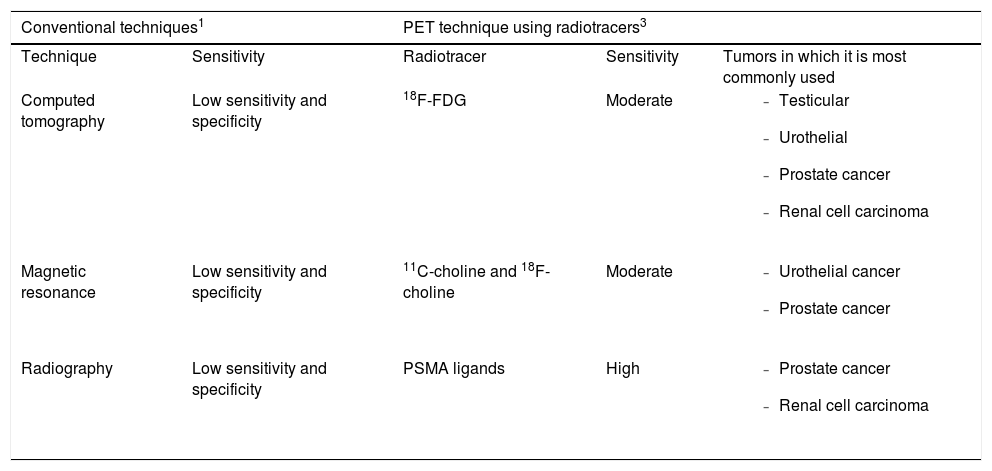To provide latest findings of Urologic Oncology on prostate, kidney, and bladder cancer, and analyze its impact on clinical practice as well as future schemes in the medium- and long-term.
MethodsThis document reviews the abstracts on Uro-Oncology presented at the 2020 Congresses (EUA, AUA, ASCO, ESMO and ASTRO), the publications with the highest impact and especially the new lines of development and progress in Uro-Oncology evaluated by the OncoForum committee.
ResultsThe use of prostate-specific membrane antigen (PSMA) radioligands in the diagnosis of prostate cancer may have great potential and utility in the coming years due to their improved sensitivity and specificity. The genetic characterization of the tumor is important at both, germline and somatic levels, due to the significant role of BRCA2 mutations regarding risk. The cohort multiple randomised controlled trial is the most suitable study design at the genitourinary cancer level. The application of big data will lead to process improvements, savings in healthcare costs, and an empowerment of real-life studies through ease of data comparison, management, and storage.
ConclusionsThe use of new diagnostic techniques with PSMA ligands will provide a more comprehensive diagnostic modality, increase the number of studies about tumor genetic profiling, and enhance their quality. The practical application of artificial intelligence will improve the treatment genitourinary cancer.
Conocer las últimas evidencias sobre Urología oncológica de tumores de próstata, riñón y vejiga, analizando su impacto en la práctica clínica diaria, además de los esquemas futuros a medio y largo plazo.
Materiales y métodosSe revisan los resúmenes sobre Uro-Oncología presentados en los Congresos del año 2020 (EUA, AUA, ASCO, ESMO y ASTRO), las publicaciones de mayor impacto y especialmente las nuevas líneas de desarrollo y avance en Uro-Oncología valoradas por el comité de OncoForum.
ResultadosEl uso de los radioligandos de antígeno de membrana específico de próstata en el diagnóstico de cáncer de próstata puede tener gran cabida y utilidad en los próximos años gracias a su mejor sensibilidad y especificidad. La caracterización genética del tumor es importante tanto a nivel germinal como somático, dado que las mutaciones en BRCA2 son especialmente importantes por su significado en riesgo. El diseño de estudio más conveniente a nivel de cáncer genitourinario es el ensayo controlado aleatorizado múltiple de cohortes. La aplicación del big data traerá mejoras en procesos, ahorros en costes sanitarios y una potenciación de los estudios en vida real gracias a la facilidad de comparación, gestión y almacenamiento de datos.
ConclusionesEl uso de las nuevas técnicas diagnósticas con ligandos de antígeno de membrana específico de próstata aportará una modalidad diagnóstica más completa y el aumento de los estudios del perfil genético del tumor y la calidad de los estudios realizados. La aplicación práctica de la inteligencia artificial mejorará el tratamiento del cáncer genitourinario.














